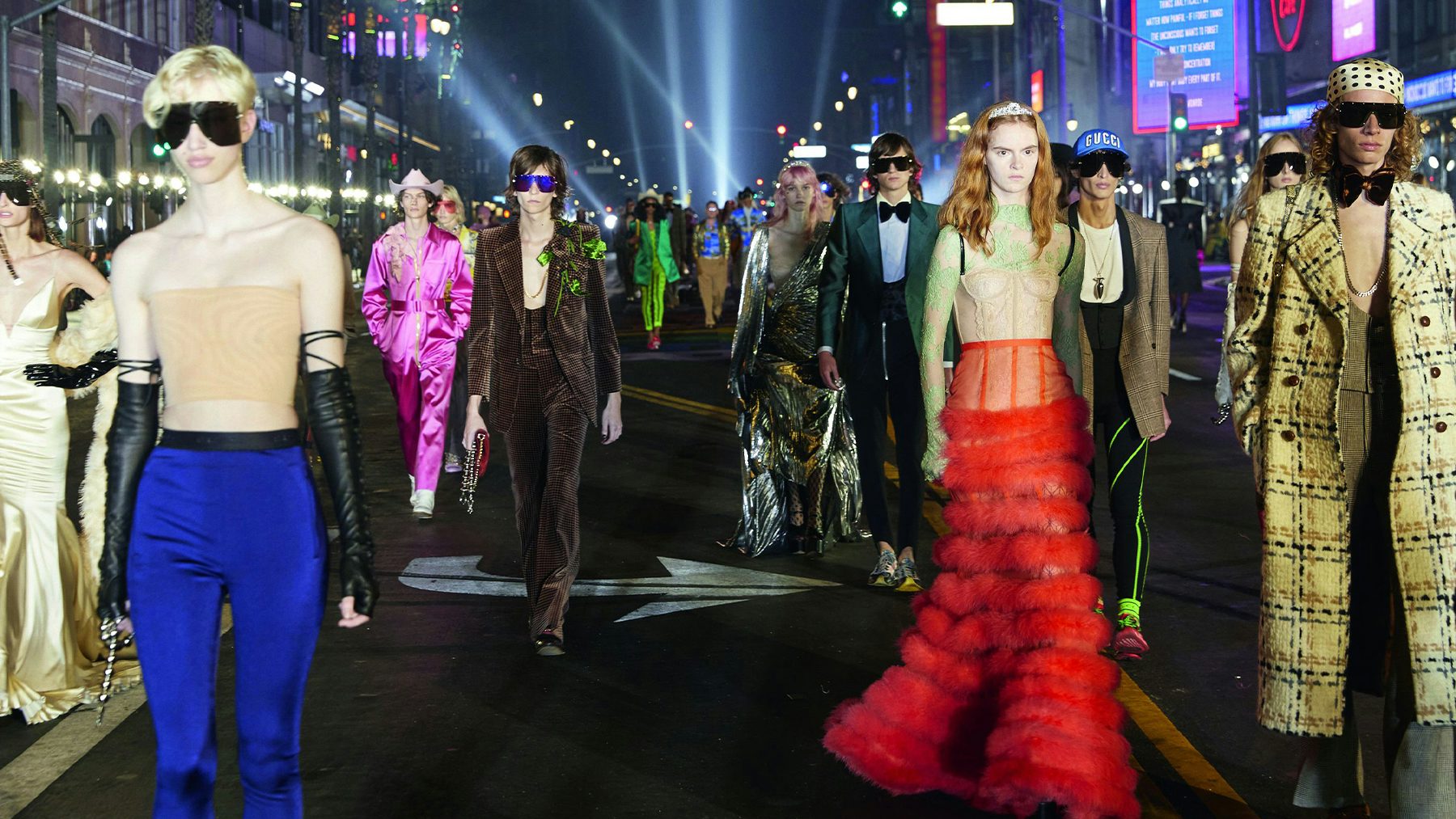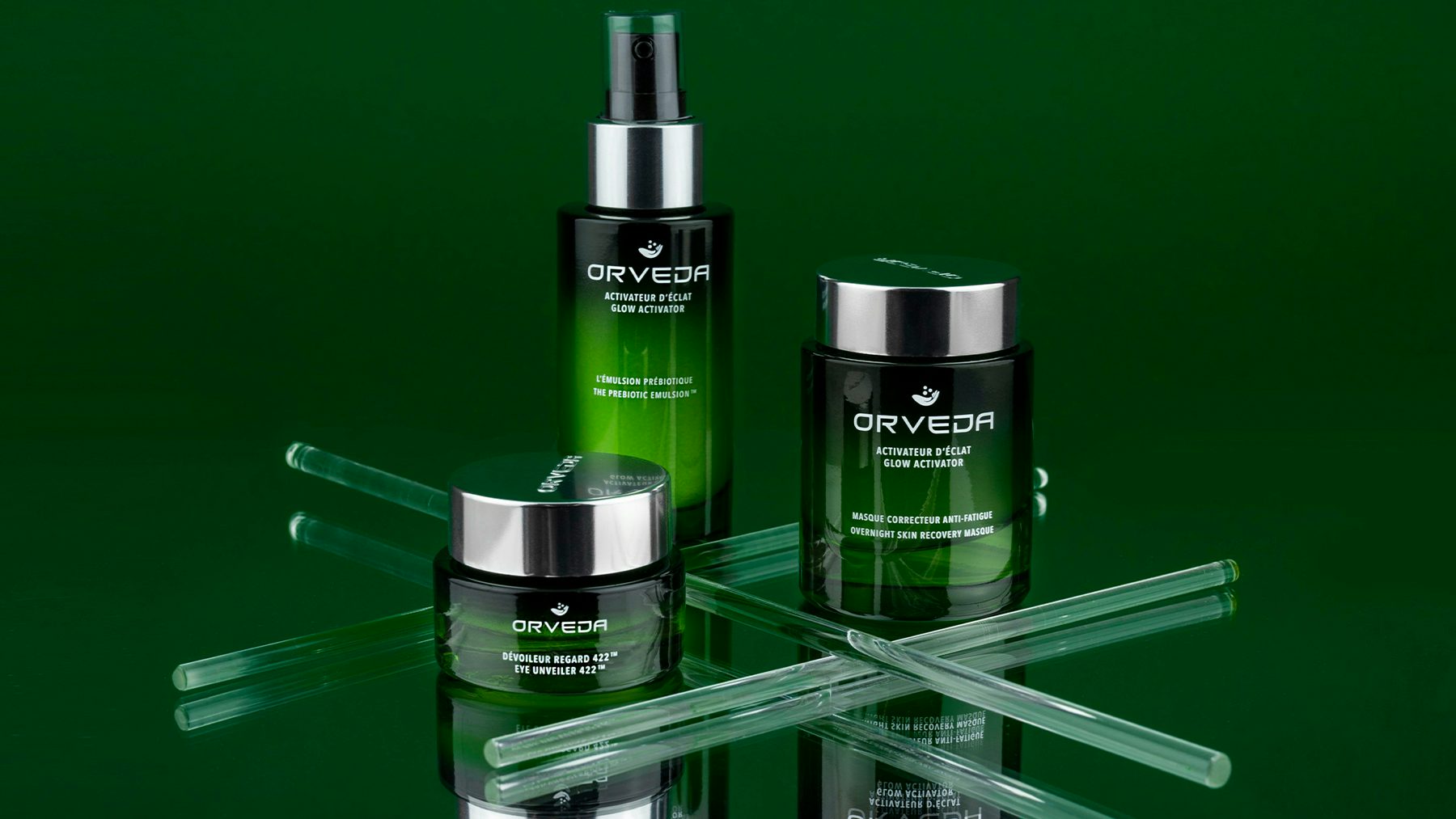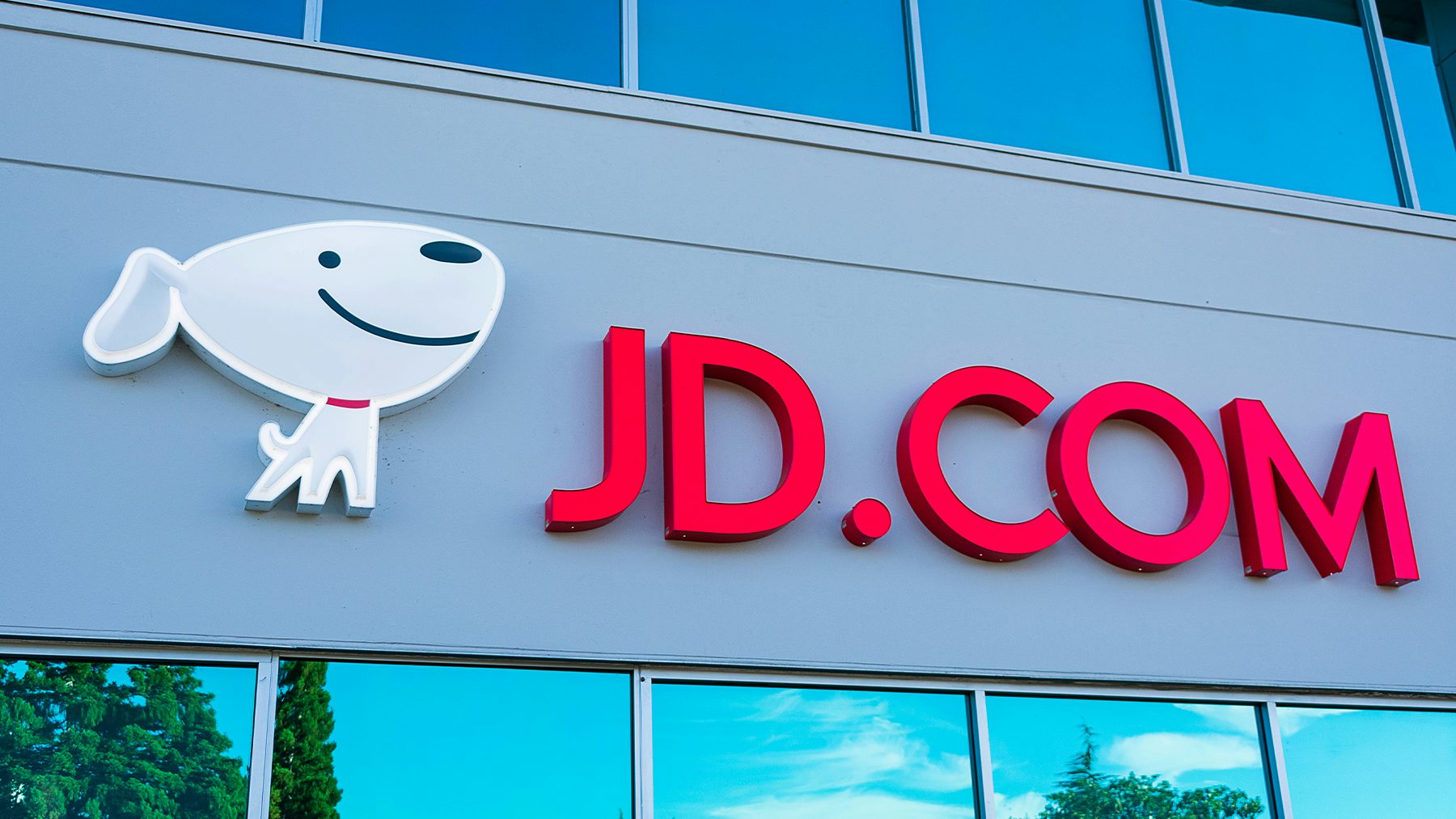What the Potential Richemont Deal Means for Farfetch | This Week in Fashion, BoF Professional
The stakes just got higher for a deal between Farfetch and Richemont.
On Thursday, Farfetch reported earnings that missed forecasts on both the total value of merchandise sold during the quarter ending Sept. 30 (they were up 23 percent instead of 30 percent year-over-year) and adjusted EBITDA, or earnings before interest taxes depreciation and amortisation (generating $5 million instead of $10 million year-over-year).
Plenty of other online retailers have reported a similar slowdown, after red-hot growth during the first year of the pandemic, when many consumers had no alternative but to shop online. Farfetch is also dealing with higher shipping costs and Apple’s new privacy rules just like every other retailer.
But for investors, the most compelling aspect of the Farfetch story was always its meteoric growth, which would someday soon lead to profits. Thursday’s results inserted a little doubt into both dreams. Farfetch’s stock plunged 10 percent Friday morning.
In an interview, founder and chief executive José Neves focused on the big picture, reiterating that Farfetch is still the market leader in online luxury, and still on track to achieve many of its original goals for the year in terms of growth and adjusted EBITDA. He attributes volatile sales to the unpredictability of the pandemic. He pointed to strategies that should bear fruit in the short- and medium-term, like increasing its fulfilment services clients to get better shipping rates, increasing the advertising it sells on its platform, launching beauty and continuing to expand in China.
Even so, analysts say Farfetch could really use a potential tie-up with Richemont and Farfetch’s largest competitor, Yoox Net-a-Porter (YNAP).
Last week, both companies confirmed the discussion of four different points: Farfetch could invest in YNAP along with other companies; YNAP could adopt Farfetch’s back-end technology; Richemont could contract Farfetch to power all of its brands’ e-commerce sites; and Richemont could start to sell its brands on Farfetch’s marketplace.
Neves said Thursday he had nothing to add to the statement that confirmed the advanced talks last week and promised no set outcome.
But clearly Farfetch stands to benefit the most from a deal that involves the addition of Richemont’s brands as clients both on Farfetch’s marketplace and, along with YNAP, on its white-label e-commerce platform.
Such a deal should boost Farfetch’s customer base and revenue and increase the supply of products it offers, driving increased profitability and growth, wrote Cowen’s Oliver Chen in a note on Thursday. Farfetch could also gain from YNAP’s curation and branding capabilities, which still sets the business apart from Farfetch.
Bernstein’s Luca Solca said “an outright majority acquisition of YNAP [by Farfetch] could raise questions, depending on the dilution it involved,” though the companies have only said a minority stake was under discussion so far.
E-commerce consultant Michel Campan said working with YNAP could at the least be a way for the marketplace to land a major new customer.
“The key in e-commerce is the acquisition of clients,” he said.
Indeed, the industry’s largest luxury brands are focused on funnelling more of their sales through their own direct-to-consumer e-commerce businesses, raising an existential threat for companies like Farfetch and YNAP that depend on their business to draw customers.
Farfetch, with its asset-light marketplace model, was already emerging as the preferred type of partner for major luxury brands moving away from wholesale, and competitors like Mytheresa and YNAP have added marketplace or e-concession options to appeal to them too.
Landing Richemont as a client would be a big get, though Campon said hard luxury will be trickier for Farfetch to sell due to the category’s different type of clientele and seasonal calendar.
But Farfetch is probably more interested in powering Richemont’s brands on their own channels, which could encourage other luxury brands to follow suit. Currently, Farfetch’s clients in “platform solutions” include Harrods and Burberry.
“I believe we are one of the few marketplace [software as service] solutions in fashion and, in my view, the only one with at-scale credentials in luxury,” said Neves on the call with analysts Thursday. “[This] represents a very large opportunity for Farfetch in the long term.”
THE NEWS IN BRIEF
FASHION, BUSINESS AND THE ECONOMY
Gucci sees 2021 sales return to 2019 levels as it returns to Milan Fashion Week. Cosimo Sereni.
Gucci sees 2021 sales return to 2019 levels as it returns to Milan Fashion Week. Italy’s largest luxury brand — whose 2021 sales were in line with or “a little higher” than 2019, said chief executive Marco Bizzarri — will show a mixed-gender collection in Milan in February. The show will mark Gucci’s first appearance in an industry-organised fashion week in two years. The brand will also stage two other shows next year in late spring and September, it said in a statement.
Louis Vuitton brings Spring/Summer show to Shanghai. Shanghai’s shipyard repair docks were adorned with 1,800 custom-made chandeliers on Wednesday to serve as the backdrop for Louis Vuitton’s Spring/Summer 2022 collection. On top of the 43 looks originally shown in Paris, an additional 19 were designed by Nicolas Ghesquière for the Shanghai show.
Macy’s says it is working with Alixpartners to review its business structure. This comes a month after activist investor Jana Partners urged the department store chain to sell its e-commerce business. Macy’s also raised its annual sales and profit outlook, easing fears that the department store would struggle with product shortages during the crucial holiday season.
Following investment, M&S launches on rental platform Hirestreet. The British retailer announced an undisclosed investment in Hirestreet’s parent Zoa Group through a joint venture with brand accelerator Founders Factory, as it launched rental on the platform. It is the first major UK high street retailer to signal broader ambitions in the clothing rental market.
Oprah and Reese Witherspoon invest in Spanx. The shapewear brand completed a majority sale to funds managed by Blackstone Inc., who intends to create an all-female board. The transaction valued Atlanta-based Spanx at $1.2 billion, according to a statement Thursday.
Nike delays Travis Scott sneaker release after Astroworld Concert tragedy. Nike had promoted the upcoming Cactus Jack shoe drop at Scott’s concert — where a crowd crush resulted in the deaths of ten people at Houston’s NRG Park — ahead of the planned December release.
House of Fraser to close London Flagship store in Jan. 2022. Formerly known as Sports Direct, Frasers Group announced on Thursday that the department store had been served notice by its landlord, who has received planning permission to redevelop the site.
Metaverse could reach $50 billion in sales for fashion. According to Morgan Stanley, digital demand for fashion and luxury brands is expected to grow from its current low levels as the metaverse develops. Most recently, Nike joined the metaverse through a partnership with Roblox, which will see players able to outfit their characters in digital versions of Nike products while they play games in “Nikeland.”
Online marketplace Faire’s $400 million funding lifts valuation to $12.4 billion. The investment round, led by Durable Capital Partners LP, D1 Capital Partners and Dragoneer Investment Group, is a sign that multi-brand stores are here to stay after a decade where direct-to-consumer brands dominated the conversation.
China’s October retail sales beat expectations. Industrial output grew 3.5 percent in October from the same period a year ago, official data showed on Monday, accelerating from a 3.1 percent increase in September, despite fresh curbs to control Covid-19 and supply shortages. Retail sales growth also picked up.
THE BUSINESS OF BEAUTY
Coty invests in prestige skin care brand Orveda as it aims to grow both categories. Coty.
Coty invests in prestige skin care brand Orveda as it aims to grow both categories. Coty disclosed neither the terms of the investment nor the vegan, microbiome and prebiotics-focused skin care brand’s current revenue. The company will prioritise growing the brand’s international presence — with special focus on China — as well as its number of retail partners.
Harry Styles launches beauty brand. The musician announced the launch of Pleasing, his first business venture, in the winter issue of Dazed, where he appears on the cover. The brand’s mix currently includes nail polish and serums, but it will release more products in the future, with a drop-style format, according to Dazed.
Global beauty accelerator SuperOrdinary pours $25 million into e-commerce partner Crea. The deal will see the two companies form a cross-border platform network and expand both firms’ portfolios to grow into new markets. Crea aims to continue expanding across Southeast Asia, where it plans on launching in Vietnam, Indonesia and the Philippines in the near future.
PEOPLE
Bottega Veneta names new creative director Matthieu Blazy. Bottega Veneta.
Bottega Veneta names new creative director. Following Daniel Lee’s abrupt departure from the brand in the middle of a successful turnaround, Kering named Matthieu Blazy, the former deputy of Raf Simons and Phoebe Philo, to Bottega Veneta’s top creative role.
Versace names Cedric Wilmote interim chief executive officer. The 13-year Michael Kors veteran will lead the Capri-owned brand as it searches for Jonathan Akeroyd’s permanent successor, reporting to Capri chief John D. Idol. Ackeroyd will leave Versace on Mar. 31 of next year to replace Marco Gobbetti as chief executive of Burberry.
Away announces new executive hires. In an attempt to bolster its leadership team, travel brand Away tapped Casper and Walgreens alum Charles Liu to be chief operating officer; Melissa Weiss, former chief marketing officer of Barry’s Bootcamp and head of marketing for Lyft’s Micromobility division, as chief marketing officer, and J.Crew veteran Luke Chatelain as chief digital officer.
Vogue Business shakes up its editorial team. Nicole Phelps, director of Vogue Runway since 2015, will now lead the publication’s editorial content and shape strategy aside Vogue Business’ editorial director Sarah Shannon. The editorial team — including Vogue Business’ newly-named chief international correspondent, Luke Leitch — will report directly to Phelps. Leitch will continue in his role as contributing editor for Vogue Runway. He is also editor at large of Vogue Italia and contributing editor for GQ in the UK.
MEDIA AND TECHNOLOGY
China’s JD.com reports a 25 percent jump in quarterly revenue. Shutterstock.
China’s JD.com reports a 25 percent jump in quarterly revenue. Boosted by sustained demand for online shopping, The company’s net revenue rose to 218.7 billion yuan ($34.27 billion) in the third quarter.
Alibaba misses quarterly revenue expectations. Revenue rose 29 percent to 200.69 billion yuan ($31.44 billion) in the quarter ended Sept. 30. Analysts on an average had expected revenue of 204.93 billion yuan ($32 billion), according to Refinitiv data, reports Reuters.
Vanity Fair’s European editions align following consolidation. In another example of how Condé Nast’s content has changed now that each publication has single regional and global editors, the Italian, French and Spanish editions of Vanity Fair announced a shared theme, “European memory,” for its upcoming editions.
Compiled by Joan Kennedy.





